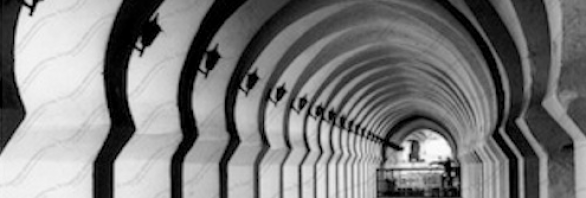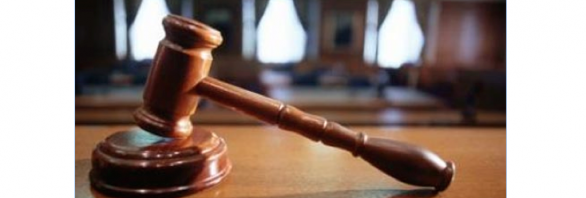Menu

- Mediation
- Arbitration
- Court Neutrals
- Online Dispute Resolution
- Technology
- Court Decisions
- More
- Legislation
- Healthcare
- Guest Posts
- John DeGroote
- John C. Fleming
- Rick Freeman
- Professor Peter Friedman
- Honorable W. Royal Furgeson, Jr.
- James M. Gaitis
- Laura A. Kaster
- Professor John Lande
- Philip J. Loree, Jr.
- Michael McIlwrath
- F. Peter Phillips
- Professor Alan Scott Rau
- Professor Thomas J. Stipanowich
- Professor S.I. Strong
- Richard Webb
- Glen M. Wilkerson
- International arbitration
- Regulation
- Sports and Entertainment
General
Special Masters: How To Make the Best of Both Worlds, Part X
By Merril Hirsh, James Rhodes & Karl Bayer - April 6, 2015
In Part Nine, we discussed the rap on special masters – the concern that special masters can be expensive and potentially ineffective; prone to an alternative agenda; and chosen because of connections to the judge. We suggested that the fact that at least the federal rules include no regularized method of selection or apparent qualification for the job of special master does not help to beat that rap. So what would help?
Where Have All The Idealists Gone? Long Time Passing, Part V
By Jeffrey Krivis - April 6, 2015
Like any new service or product, people started to alter the process of mediation in the adversarial system to meet their objectives. Litigators needed to find out quickly if appropriate resources (money) were available for their case. In order to learn if the process of mediation would be fruitful, litigators encouraged the mediators to bypass the basic essence of what drew the idealists to the field in the first place, self-determination and em
Where Have All The Idealists Gone? Long Time Passing, Part IV
By Jeffrey Krivis - April 3, 2015
A major shift took place when lawyers grafted the mediation process onto adversarial litigation, where the focal point of the dispute was highly competitive zero sum games. Courts throughout the U.S., Canada and the U.K. encouraged and even mandated the use of mediation to help streamline caseloads. The process became wildly successful and has been utilized in the same fashion as other improvements to the civil justice system such as depositions,
Where Have All The Idealists Gone? Long Time Passing, Part III
By Jeffrey Krivis - April 2, 2015
To appreciate any new movement it is helpful to understand the motivation of the early idealists who planted the first seeds. Many were disillusioned lawyers, often referring to themselves as “recovering attorneys.” Others were devout supporters of the civil justice system (judges, professors, trial lawyers) dedicated to its ongoing improvement.
Where Have All The Idealists Gone? Long Time Passing, Part II
By Jeffrey Krivis - April 1, 2015
Over the years, a common theme heard among litigators after a grueling case where one side loses is that there must be a better way to manage disputes. In the mid -1970s, legal scholars from around the nation came together to review ways to make the legal process more user-friendly and accessible. They concluded, among other things, that a multi-door courthouse with processes that were designed to fit the forum to the dispute might be worth consi
Where Have All The Idealists Gone? Long Time Passing, Part I
By Jeffrey Krivis - March 31, 2015
A recent discussion among a seasoned group of neutrals about the struggles of the professional mediator caught my eye. Some complained that the trend in litigated cases was to reduce the value of the mediator to a commodity, due to the constraints put on them by the litigants who were not process oriented.
Special Masters: How To Make the Best of Both Worlds, Part IX
By Merril Hirsh, James Rhodes & Karl Bayer - March 19, 2015
In Part Eight, we talked about how, notwithstanding all the apparent benefits special masters can have for civil litigation, there is a rap, rightly or wrongly, on special masters that they can be (1) expensive and potentially ineffective if they merely add another layer of decision-making to challenge; (2) prone to alternate agenda; and (3) chosen because of connections to the judge, rather than management skills or independence. Yet, here we ar
Special Masters: How To Make the Best of Both Worlds, Part VIII
By Merril Hirsh, James Rhodes & Karl Bayer - March 16, 2015
We’ve now spent several posts extolling the virtues of using special masters in such fervent tones that the invention of sliced bread has begun to pale by comparison. So why aren’t people using special masters on a routine basis to obtain these terrific benefits?
Special Masters: How To Make the Best of Both Worlds, Part VII
By Merril Hirsh, James M. Rhodes & Karl Bayer - February 24, 2015
In the past few posts, we have been discussing how special masters can be part of making resolutions of disputes fair, just and efficient. Part IV focused on using special masters as hands-on managers to incentivize parties to avoid discovery disputes in the first place and to resolve discovery disputes quickly, fairly and with a minimum of expense when they do occur.
Special Masters: How To Make the Best of Both Worlds, Part V
By Merril Hirsh, James M. Rhodes, Karl Bayer - January 12, 2015
In Part Four we began to discuss solutions (not just problems), and urged that a first step in incentivizing counsel to hold down litigation costs is to have a neutral oversee the process of discovery closely enough (1) to make it in counsel’s interest to act reasonably in the first place; and (2) to rule on unreasonable demands or failures to respond to discovery quickly, so that they gain no tactical advantage.
About Disputing
Disputing is published by Karl Bayer, a dispute resolution expert based in Austin, Texas. Articles published on Disputing aim to provide original insight and commentary around issues related to arbitration, mediation and the alternative dispute resolution industry.
To learn more about Karl and his team, or to schedule a mediation or arbitration with Karl’s live scheduling calendar, visit www.karlbayer.com.
Recent Posts
Featured Posts
Search
Legal Research
© 2025, Karl Bayer. All rights reserved. Privacy Policy















